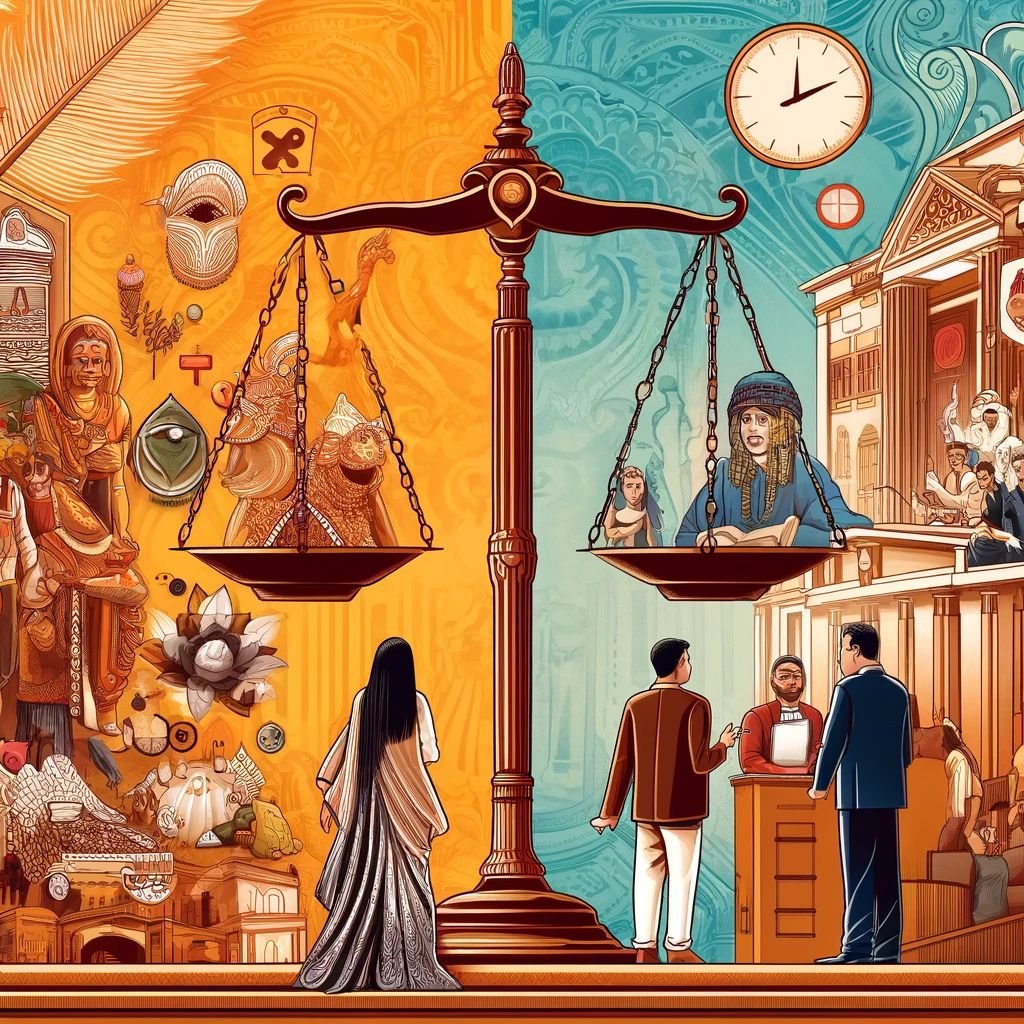
Introduction
Adultery has long been a subject of social, moral, and legal debate across the globe. In India, the perception and legal status of adultery have undergone significant changes over the years. This blog delves into the historical context, legal evolution, and contemporary implications of adultery in India, providing a detailed and engaging exploration of this complex issue.
Historical Context of Adultery in India
Adultery, traditionally defined as voluntary sexual intercourse between a married person and someone other than their spouse, has been considered a moral transgression in many cultures, including India. Historically, Indian society, with its strong emphasis on marital fidelity and the sanctity of marriage, viewed adultery as a grave moral wrongdoing.
Adultery in Ancient India
In ancient India, the Manusmriti and other Dharmashastra texts laid down strict codes of conduct for individuals, particularly concerning marital relations. Adultery was condemned and met with severe social and religious penalties. Women, in particular, faced harsher repercussions due to the patriarchal structure of society.
The Legal Evolution of Adultery in India
The legal treatment of adultery in India has evolved significantly, reflecting changing societal norms and values.
Pre-Independence Era
During the British colonial period, the Indian Penal Code (IPC) of 1860 criminalized adultery under Section 497. The law was framed with a distinct gender bias, wherein only the man engaging in sexual relations with a married woman, without her husband’s consent, was punishable. The woman was considered a victim, not an offender.
Post-Independence Era
After India gained independence in 1947, the legal stance on adultery remained largely unchanged for several decades. However, with growing awareness of gender equality and individual rights, calls for reform began to gain momentum.
Landmark Judgments and Legal Reforms
The turning point in the legal landscape of adultery in India came with a series of landmark judgments and legal reforms in recent years.
Joseph Shine v. Union of India (2018)
In 2018, the Supreme Court of India delivered a historic verdict in the case of Joseph Shine v. Union of India. The court struck down Section 497 of the IPC, decriminalizing adultery. The judgment was based on several key considerations:
- Gender Equality: The court recognized the inherent gender bias in Section 497, which treated women as property of their husbands and denied them agency. Decriminalizing adultery was seen as a step towards achieving gender equality.
- Right to Privacy: The judgment emphasized that criminalizing adultery violated the right to privacy, a fundamental right enshrined in the Indian Constitution. The court opined that consensual sexual relationships between adults fall within the realm of privacy.
- Marital Autonomy: The court asserted that the state should not interfere in the intimate and personal affairs of individuals, including their marital relationships. It upheld the principle of marital autonomy and the freedom to make personal choices.
Contemporary Implications of Decriminalizing Adultery
The decriminalization of adultery has far-reaching implications for Indian society and its legal system.
Social and Moral Perspectives
While adultery is no longer a criminal offense, it continues to be viewed as a moral transgression by many. Societal attitudes towards adultery are deeply influenced by cultural and religious norms. The decriminalization has sparked debates on whether legal reform should influence moral values and social behavior.
Impact on Marriage and Divorce
Adultery, although decriminalized, remains a valid ground for divorce under Indian matrimonial laws. Spouses can still seek divorce on the grounds of adultery, citing it as an act of marital misconduct. The legal reform has thus shifted the focus from punitive action to civil remedies.
Gender and Individual Rights
The decriminalization of adultery has been hailed as a victory for gender equality and individual rights. It underscores the importance of respecting personal autonomy and the right to make consensual choices in intimate relationships.
The Way Forward
As India progresses, it is essential to balance legal reforms with social awareness and education. Promoting gender equality, respecting individual rights, and fostering a culture of mutual respect and understanding within marriages are crucial steps towards a more just and equitable society.
Legal Education and Awareness
Educating the public about the implications of legal reforms and their rights is vital. Legal awareness campaigns can help individuals understand the significance of decriminalizing adultery and its impact on their lives.
Counseling and Support Services
Strengthening counseling and support services for couples can help address marital discord and reduce instances of adultery. Providing accessible and effective counseling can promote healthier and more resilient relationships.
Promoting Gender Sensitivity
Encouraging gender sensitivity and equality in all spheres of life, including education, employment, and family dynamics, can contribute to a more inclusive and progressive society.
Conclusion
The decriminalization of adultery in India marks a significant step towards recognizing individual rights and promoting gender equality. While legal reforms are essential, they must be complemented by efforts to change societal attitudes and promote a culture of mutual respect and understanding. As India continues to evolve, it is imperative to strike a balance between legal progress and social awareness, ensuring a just and equitable society for all.
Understanding and adapting to legal changes is crucial for personal and societal growth. By staying informed and proactive, we can collectively work towards a future where individual rights are respected, and justice prevails.










